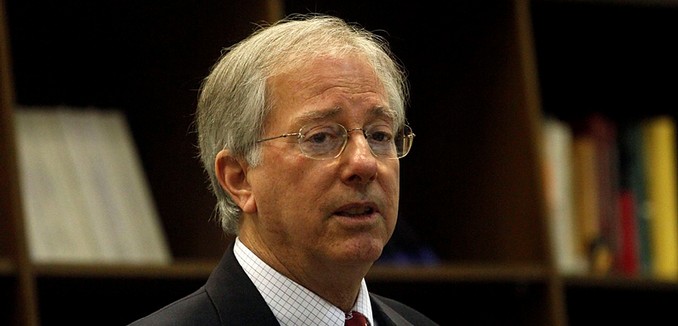The Obama administration’s failure to address the brutality of the Iran-backed regime of Bashar al-Assad in Syria led to a “vacuum” that allowed “a humanitarian catastrophe, a terrible refugee crisis, a deepening proxy war and the rise of ISIL in Iraq and Syria” to occur, Dennis Ross, a former White House adviser to President Barack Obama, wrote in Politico on Sunday.
Ross explained that the administration’s failure to act stemmed from a reluctance to repeat the mistakes that the United States made during the Iraq War, but added that Syria was different from Iraq, as Syria would involve aiding “an internal uprising” against Assad rather than an American invasion. According to Ross, Assad had turned the uprising against him into a sectarian conflict in the hope that his Alawite sect and other Syrian minorities would have a stake in his survival.
Soon, thereafter, it was transformed into a proxy war largely pitting Saudi Arabia and Turkey against Iran. A vacuum was created not by our replacing the Assad regime but by our hesitancy to do more than offer pronouncements—by overlearning the lessons of Iraq, in effect. And, that vacuum was filled by others: Iran, Hezbollah and Iran’s other Shia militia proxies; Saudi Arabia, Turkey and Qatar; Russia; and ISIL. Unless the U.S. does more now to fill this vacuum, the situation will spin further out of control.
Ross observed that the vacuum in Syria was part of a greater American retreat in the Middle East, which “has helped to produce the increasing competition between Iran and Saudi Arabia.” Without fear of American action, he argued, Qassem Soleimani– the commander of Iran’s Islamic Revolutionary Guard Corps elite Qods Force– was transformed from a “shadowy figure” to one who was present at seemingly every major battle in Iraq and Syria. Eventually, given Iran’s continued aggressiveness and America’s passivity, Saudi Arabia sought to push back against Tehran on its own.
While Ross argued that the growing Iranian-Saudi tensions were not likely turn into a hot war, he noted that the escalation hurts efforts to address the humanitarian catastrophe in Syria. In addition, without the U.S. taking an active role in the Middle East, Russia actively entered and further complicated the fray. Until Moscow agrees to pressure Assad “to respect a ceasefire, stop the barrel bombs, and permit the creation of humanitarian corridors” to deliver food and aid to non-ISIS opposition groups, Ross wrote, there is no hope of getting Saudi Arabia or other Sunni nations to join the fight against ISIS.
In order to address the vacuum, Ross suggested that the U.S. take a number of steps to regain control of the situation without getting too deeply involved. These include putting “troops on the ground, including deploying spotters for directing air attacks, embedding forces with local partners perhaps to the battalion level, and using special operations elements for hit-and-run raids.”
In 2014, Ross noted that the administration’s growing closeness to Iran was concerning American allies in the Middle East. For “the Arabs, the fear is that the deal with come at their expense,” he explained. His recent suggestion that the administration must somehow restrain Iran’s client, Assad, before it can exert any influence in Syria demonstrates that this fear still remains intact.
[Photo: Uri Lenz / FLASH90 ]




